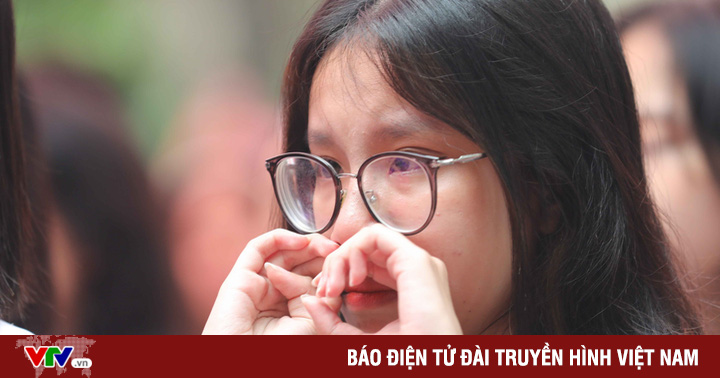AmericaUniversity lecturers are working hard to fill in the knowledge of students who spend most of their final year of high school in the form of online learning.
Andrea Hernandez studied the times table nearly every day during the summer between third and fourth grade. Sitting at the family dinner table in Dallas while her mother prepared dinner, she wrote and rewrote calculations on a yellow spring-loaded notebook. When she started studying at her new school in the fall of 2012, she easily passed math tests. Since then until Covid appeared, 16-year-old student Hernandez always shined in the pre-calculus class.
Then, like millions of other students across the United States, Hernandez was forced to switch to online learning. The other half of the 11th grade and most of the 12th grade, I had to study on a laptop in the family’s living room, while my younger brother studied via Zoom in the hallway of the two sisters’ shared bedroom.
She said she was tired of studying; The quality of online learning is not only lower than classroom learning, but “not even quality at all”.
Hernandez fell short on the placement test to get into calculus class for the fall semester of freshman year at the University of Texas, Austin. I retaken it and got an A. Now, I spend four days a week in a seminar-style calculus class, with 31 other mathematicians and future engineers.

Andrea Hernandez (pink shirt), freshman math major at the University of Texas, Austin.
Many students whose final year of high school was interrupted by the pandemic are having a hard time studying in general classes. Hernandez’s math professor, Uri Treisman, is nationally known for his method and philosophy of teaching calculus. He said his freshman calculus class, fall 2021 semester, was the most difficult for him in his 50 years of teaching. Students make basic errors in algebra and trigonometry right from the start. Even though Treisman did all he could, about 25% of his students still failed, compared with 5% in a typical year.
“It’s been really hard, because we know the price students have to pay,” Treisman said of himself and his partner Erica Winterer. “The student’s failure is my failure”.

Uri Treisman, a professor of calculus at the University of Texas.
From preschoolers to high school students preparing to go to college, nearly all have had their studies interrupted since March 2020. Still, experts worry that disadvantaged students – often low-income students and students of color – may suffer more.
“Here and around the world, the rich care and worry about their children’s future, and they are investing heavily to ensure their children have an edge,” Treisman said. “That anxiety requires people who care about fairness to work harder.” Even in a typical year, Treisman says, students’ readiness levels or knowledge bases are uneven. But because of the pandemic, his students are struggling with completely different tensions.
For example, Hernandez was studying 12th grade math via Zoom in the living room when her father returned home from work a few hours earlier, saying that her grandfather, who lived in San Luis Potosí, Mexico, had died of Covid-19. I stood up from the desk, did not turn off the camera or remove the wireless headset. When I received the news that my grandfather had passed away, the math lecture was still ringing in my ears.
For students like Hernandez, it’s hard to stay focused on school when the ones you love most are facing serious illness, financial hardship or uncertainty caused by the pandemic. Every day at school becomes a day of struggle instead of a day of joy.
There are students facing access barriers. Before the pandemic, Halil Hamscho and his twin brother studied on a white folding table, sharing a laptop. If one uses a computer, the other must learn by phone.
Hamscho graduated valedictorian in high school, although he said his knowledge gained during the Covid-19 era has “dipped”. The grades don’t indicate ignorance, but I find myself just “rummaging information”, especially in math. Future mechanical engineer Hamscho failed his first calculus course in college before starting a group class. I finally got an A in Treisman’s class.
Typically, about 2 to 4% of students in Kristin Patterson’s genetics class at the University of Texas fail the course. Last fall, about 20% of students failed their subjects. Associate Professor Patterson said the university did not fully understand how the pandemic had impacted student readiness.
The pandemic moved so quickly that most teachers across the country were taken by surprise, trying to convert their one-day, two-day in-person curriculum to something that could be used online. Many teachers, both at the high school and college levels, have difficulty accurately assessing student progress.

Erica Winterer, doctoral student and lecturer at the University of Texas, Austin, works with freshmen in calculus.
Patterson says it’s difficult to gauge student understanding with tests and quizzes remotely, because students can look up many sources. There are no reliable indicators of student progress, she said, fearing that teachers “are assuming mastery when it may not exist”.
Today’s freshmen are probably not the only ones struggling, according to Ed Venit, director of education research firm EAB. He predicts that the next few years of high school graduates will need unprecedented levels of academic support.
At the University of Maryland, Baltimore, the percentage of students receiving D, F or withdrawing courses is increasing and math placement scores are falling. Therefore, the administration has added some content to the general knowledge course to prepare students for college to help develop time management skills and study skills.
At Kansas State University, when freshmen have gaps in knowledge and programs, they are monitored midterm with an early warning system that uses low grades and missed assignments to determine which students are struggling. difficulties and connect them with additional resources. At the City of New York City University’s John Jay College of Criminal Justice, students with a GPA lower than 2.0 are invited to join support groups run by social work interns.
Treisman, watching his students struggle through last fall, is quickly find ways to help them recover. “It’s reckless to lower the bar,” Treisman said. “The biggest risk, from a teacher’s perspective, is that I give them a good grade and they’re not ready for what’s to come.” Not only is he preparing students for their next calculus class, but it’s also filling in prerequisites they don’t have before entering college, he said.
After Treisman gave out his first test last fall, Winterer, his partner, emailed all the students who failed, asking them to come see her. She helped them develop a plan to get back on track, organizing formal study groups—interventions that have worked for Treisman and Winterer students in the past.
Students who fail the course will also face other obstacles. If their GPA drops, they risk losing their financial aid, making it impossible to graduate with a degree.
And if society is not able to help students recover, Venit, an education researcher, says he is concerned about the economic impact on a large scale. Students from families with financial stability before the pandemic will be able to bounce back, and those who are not – overwhelmingly students of color, students who are the first generation in their families to go to school, Rural students – will have a much harder time, he said.
“If these children don’t have the opportunity to progress financially, the rich get richer, and the poor stay poor,” Venit said. “That reverses a trend we’ve been working on for the past 20 years at the university level.”
Hernandez was nearly halfway through her second semester at the University of Texas, and the goal was clear: Pass calculus, graduate college, and become a middle school math teacher. To do that, she must find the girl from ten years ago who always submitted her times table test in first grade.
Mai Huyen (According to USD Today, Hechinger Report)
at Blogtuan.info – Source: vnexpress.net – Read the original article here



